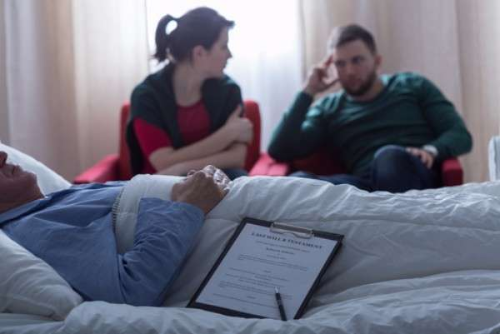Nursing homes are places where our loved ones go to receive proper care and attention. Unfortunately, not all nursing homes are created equal, and some may not provide adequate care. If you have concerns about a nursing home in South Carolina, you may want to file a complaint to ensure that your loved one receives the care they deserve. In this blog post, we will outline the steps for filing a complaint against a South Carolina nursing home.
Step 1: Gather Information
Before filing a complaint, gather as much information as possible about the nursing home in question. This includes the name and address of the nursing home, the name of the staff members involved, and any relevant dates and times. You should also gather any documents, such as medical records or incident reports, that support your complaint.
Step 2: Contact the South Carolina Department of Community Health
The South Carolina Department of Community Health (DCH) is responsible for regulating nursing homes in the state. To file a complaint, you can contact the DCH Healthcare Facility Regulation Division by phone or in writing. You can also file a complaint online through the DCH website.
Step 3: Provide Detailed Information
When filing a complaint, be sure to provide as much detailed information as possible. This includes the name of the nursing home, the names of the staff members involved, and a detailed description of the incident or issue. You should also include any relevant documents or evidence that support your complaint.
Step 4: Follow Up
After filing a complaint, it is important to follow up with the DCH to ensure that your complaint is being investigated. The DCH will provide you with a reference number that you can use to track the status of your complaint. You should also keep records of all communication with the DCH, including phone calls and emails.
Step 5: Consider Legal Action
If the nursing home fails to address your concerns or if you believe that your loved one is in immediate danger, you may want to consider legal action. You can contact an attorney who specializes in nursing home abuse and neglect to discuss your options.
Step 6: Consider Alternative Options
In addition to filing a complaint, there are alternative options available if you have concerns about the care that your loved one is receiving in a South Carolina nursing home. These options include:
Contacting the nursing home administrator: If you have concerns about the care that your loved one is receiving, you can contact the nursing home administrator to discuss your concerns. The administrator may be able to address your concerns and take action to improve the quality of care.
Contacting an ombudsman: An ombudsman is an advocate for nursing home residents. They can provide assistance and support to residents and their families who have concerns about the care that they are receiving. You can contact the South Carolina Long-Term Care Ombudsman Program to find an ombudsman in your area.
Seeking a transfer: If you have concerns about the care that your loved one is receiving in a nursing home, you may want to consider transferring them to another facility. You can contact the South Carolina Department of Community Health to find a list of nursing homes in your area.
Step 7: Take Preventative Measures
To prevent future incidents from occurring, it is important to take preventative measures. These measures include:
Visiting your loved one regularly: By visiting your loved one regularly, you can monitor their care and ensure that they are receiving the proper attention and treatment.
Speaking with staff members: Take the time to speak with the staff members at the nursing home to establish a positive relationship and ensure that your concerns are being heard.
Reporting any issues: If you notice any issues or concerns during your visits, be sure to report them to the nursing home administrator or the South Carolina Department of Community Health.
At Christian & Christian Law, we specialize in nursing home abuse and neglect cases in South Carolina, and we can provide legal assistance and support if you have concerns about the care that your loved one is receiving in a South Carolina nursing home. We can provide a legal consultation to discuss your case and provide guidance on the steps that you should take.
Our team of attorneys can conduct an investigation to gather evidence to support your complaint and work to negotiate a settlement with the nursing home. If necessary, we can represent you in court to ensure that your rights are protected and that you receive the compensation that you deserve.
We have experience working with the South Carolina Department of Community Health and can provide guidance on how to file a complaint and ensure that your complaint is properly investigated.
If you have concerns about the care that your loved one is receiving in a Georgia nursing home, contact us at Christian & Christian Law. We can provide the support and guidance that you need to ensure that your loved one receives the care that they deserve.
